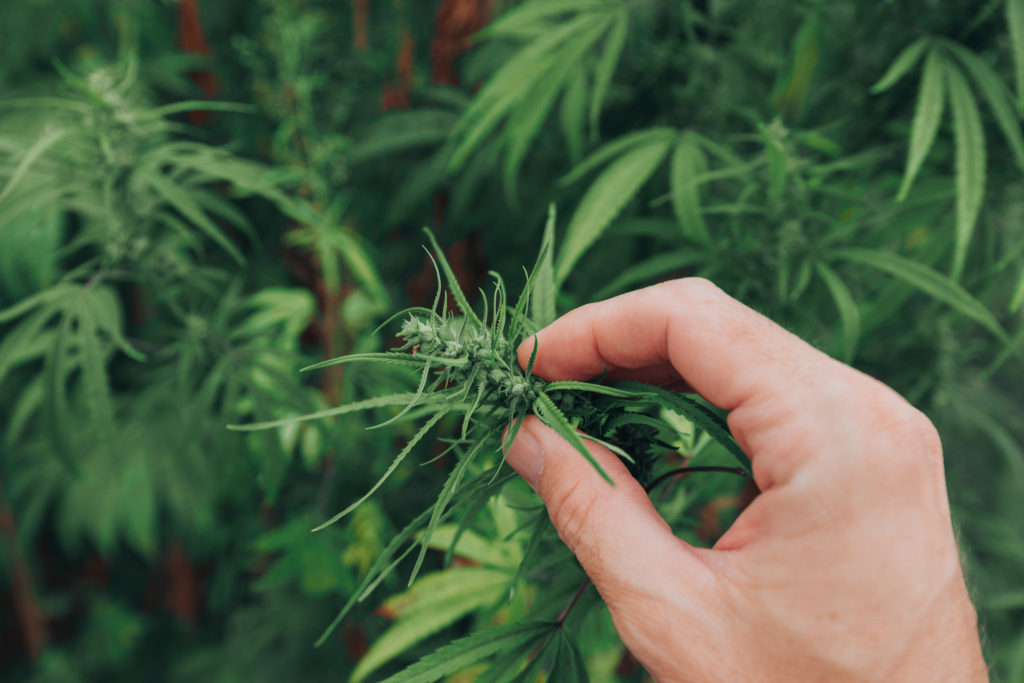Thinking About Trying CBD?

FIRST, WHAT IS CBD?
Cannabidiol, also known as CBD, is a naturally occurring chemical found in the cannabis plant, hemp, and marijuana types of cannabis plants. Researchers have identified more than 100 phytochemical compounds from the plant, they are collectively called cannabinoids. The other cannabinoid you have likely heard of is tetrahydrocannabinol or THC. This cannabinoid is the main psychotropic component of cannabis which is responsible for the “high” that users experience.
Cannabidiol does NOT cause users to get high and tends to be a common misconception regarding its use.
WHAT DOES CBD DO?
Cannabidiol works through something called the endocannabinoid system; don’t worry about the long-complicated name. Researchers have found that this system participates significantly in the normal physiology of gastrointestinal function, displaying involvement in motility, gut-brain-mediated fat intake and hunger signaling, inflammation and gut permeability, and dynamic interactions with gut microbiota (the trillion microorganisms living within each individual’s gut). CBD is known to have an indirect effect upon both the CB1 and CB2 receptors within this system.
There are a variety of health benefits that have been reported with the use of CBD. The strongest scientific evidence to date regarding its effectiveness is in treating childhood epilepsy syndromes, such as Dravet syndrome and Lennox-Gastaut syndrome (LGS); these conditions typically do not respond to antiseizure medications.
WHAT ARE OTHER POTENTIAL HEALTH BENEFITS OF CBD?
- Improved sleep
- Reduction in anxiety
- Lower pain and inflammation associated with arthritis
- An animal based study in ulcerative colitis showed improvement in inflammation
- May be helpful for patients with IBS-D (irritable bowel syndrome-diarrhea) by slowing gastrointestinal motility
- May improve diversity of gut microbiome which may lower colon cancer risk
Adapted from Kate Scarlata, RDN. See her blog for sited research studies: http://blog.katescarlata.com/2018/12/06/cannabidiol-cbd-is-the-latest-trend-here-are-my-thoughts/.
Also, check out this article about a new medication, a cannabinoid receptor 2 agonist called olorinab, that showed promise in treating the pain associated with Crohn’s disease:
https://www.medpagetoday.com/reading-room/aga/lower-gi/77219?xid=nl_mpt_DHE_2019-01-04&eun=g1104338d0r&pos=1&utm_source=Sailthru&utm_medium=email&utm_campaign=Daily%20Headlines%202019-01-04&utm_term=NL_Daily_DHE_Active
DO YOUR HOMEWORK THOUGH…
You can purchase a subscription to ConsumerLab.com to read about their 3rd party testing of CBD products to determine a safe product. The reason this is important is because the cannabis plant is a bioaccumulator (a fancy word for increased uptake by the plant) and will hyper absorb toxins from the soil in which it is grown. Therefore, you should select a product that has been organically grown and had 3rd party testing at a minimum.
The bottom line on CBD is we need more research to prove that it is an effective and safe option for managing insomnia, anxiety, chronic pain, gut-related health conditions and many other health claims. Without enough high-quality evidence in human studies we can’t pinpoint effective doses or ensure that it doesn’t interact with other medications, and because CBD is currently mostly available as an unregulated supplement, it’s difficult to know exactly what you are getting. The hope is this will continue to change in the future with more and more legislation being passed which will require regulation and safety measures to be in place.
Read more about the topic of cannabinoids on this Harvard health blog: https://www.health.harvard.edu/blog/cannabidiol-cbd-what-we-know-and-what-we-dont-2018082414476.
If you would like to understand more about CBD and other alternatives for addressing sleep, anxiety, and any gastrointestinal related complaints please come see our TEAM of experts that can help! Call 224.407.4400 or visit compgihealth.com!
